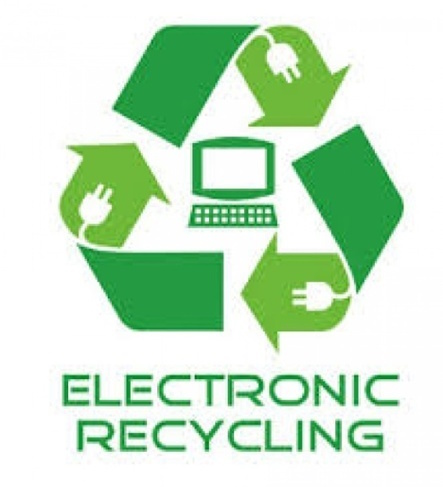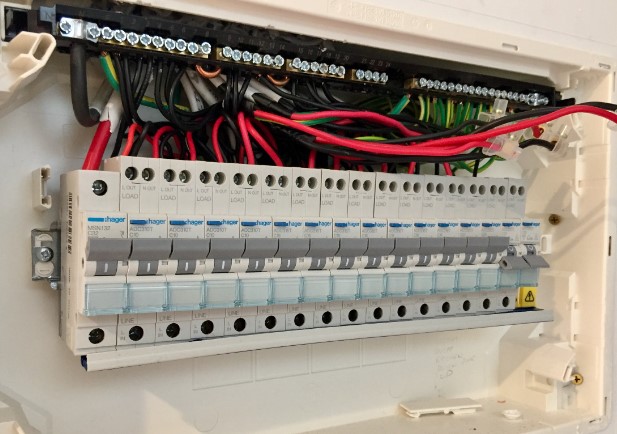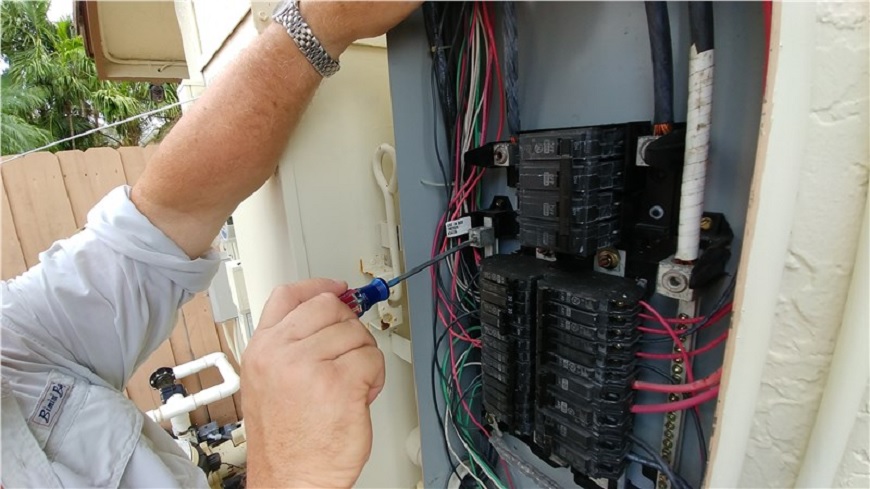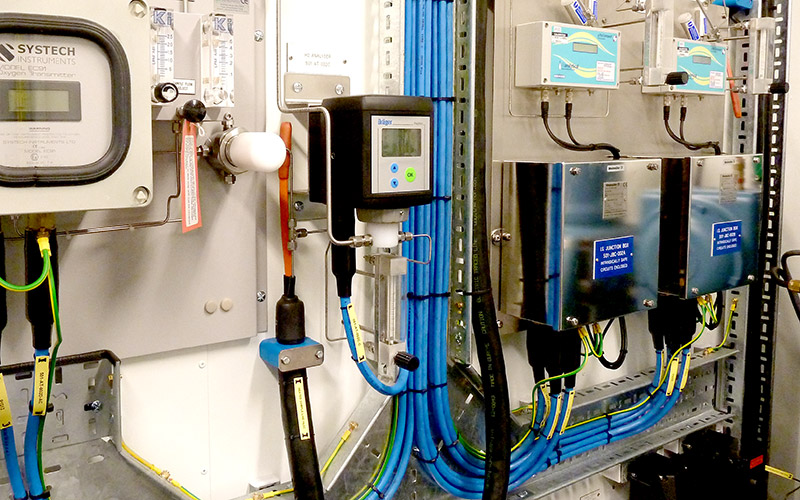Hiring a competent and reliable electrician can be one of the most critical decisions when it comes to maintaining or improving your home. Whether you’re facing a sudden electrical emergency, remodeling, or installing new appliances, finding a good local electrician can make the difference between a successful project and a costly disaster. According to the National Fire Protection Association (NFPA), electrical failures or malfunctions were the second leading cause of U.S. home fires in 2022, underscoring the importance of hiring a professional. But how exactly do you find a trustworthy, skilled, and reasonably priced electrician near you?
This article will guide you through every step, ensuring that you know what to look for, where to search, and how to make an informed decision. We’ll also dive into some reputable statistics, provide examples of highly rated electrical contractors, and include key considerations to ensure your electrical needs are met safely and efficiently.
1. Why Is It Important to Hire a Qualified Electrician?
Before diving into how to find the right electrician, it’s essential to understand why it’s important to hire someone qualified. Electrical work is complex and can pose significant risks if not done correctly. According to the Electrical Safety Foundation International (ESFI), electrical hazards cause over 1,000 injuries and 400 deaths annually in the U.S. In addition, poorly done electrical work can lead to fires, electrocution, and costly repairs.
Hiring a licensed and insured electrician helps protect your home, your safety, and your wallet. Here are a few reasons why you should never cut corners when hiring an electrician:
- Safety: A trained electrician knows how to avoid common mistakes that could lead to hazardous situations. They are familiar with local electrical codes, safety regulations, and best practices to ensure a job is done correctly and safely.
- Cost Efficiency: While it might be tempting to save money by doing electrical work yourself or hiring a cheaper, unlicensed worker, poor quality work could lead to bigger problems down the line. A professional can ensure the job is done correctly the first time, potentially saving you money on repairs and insurance claims.
- Compliance with Codes: Licensed electricians understand and work in compliance with local and national electrical codes. This ensures that your property is safe and up to code, which is crucial if you plan to sell or insure your home.
- Expertise and Tools: Electricians bring specialized knowledge and tools to the job. They can diagnose issues efficiently and work with modern technologies, such as smart home systems, advanced lighting, and complex wiring installations.
2. How to Find a Good Local Electrician: Key Steps
Finding a reliable local electrician requires a bit of research and due diligence. Here are some steps you can take to ensure you hire the right professional:
Step 1: Ask for Recommendations
One of the best ways to find a good electrician is through word of mouth. Ask friends, family members, neighbors, or coworkers if they’ve recently hired an electrician and if they were satisfied with the work. Personal recommendations can often give you more insight into a contractor’s reliability, professionalism, and quality of work than an online review alone.
Step 2: Check Online Reviews and Ratings
Online review platforms like Yelp, Google, and Angi (formerly known as Angie’s List) provide valuable insights into electricians in your area. Look for contractors with consistently high ratings and read through customer reviews to get a sense of their reputation. Pay attention to how electricians handle complaints or negative reviews—this can show their level of professionalism and customer service.
Here are some trusted sites to check for local electricians:
- Angi: A resource for verified reviews and ratings of local electricians. The platform requires a subscription but can help you find highly rated electricians based on real feedback.
- HomeAdvisor: Another popular site for finding home service professionals, including electricians. HomeAdvisor offers background checks and screening, ensuring that the electricians listed meet specific quality standards.
- Better Business Bureau (BBB): The BBB provides ratings and customer complaints for businesses. You can search for electricians by name or location and read about any complaints filed against them.
Step 3: Verify Licensing and Insurance
Before hiring an electrician, ensure that they are licensed, bonded, and insured. In most areas, electricians are required to be licensed by a local authority. You can check licensing with your state’s Department of Labor or other relevant regulatory bodies. Licensed electricians should also carry insurance to protect both themselves and you in case of accidents or damages during the job.
- Electrical Safety Foundation International (ESFI) suggests checking with your local government for the proper credentials of your electrician.
- A reliable electrician will be more than happy to provide proof of insurance and licensing if asked.
Step 4: Request Multiple Quotes
Getting multiple quotes from different electricians allows you to compare not only prices but also services offered. Some electricians might offer warranties or specialized expertise in certain areas (e.g., home automation or electric vehicle charger installation). When comparing quotes, be cautious of contractors who offer significantly lower prices than others. This could be a red flag that they cut corners or are not properly licensed or insured.
Step 5: Ask About Experience and Specialization
Electricians often specialize in different areas of electrical work. For example, some may focus on residential projects like wiring new homes, while others specialize in commercial or industrial work. When interviewing electricians, ask about their experience with projects similar to yours. If you’re installing a solar panel system, for instance, look for an electrician who has specific experience in renewable energy installations.
A good local electrician should be able to explain their experience, outline how they will approach your project, and provide references from past clients.
Step 6: Verify References and Past Projects
Once you have a few electricians in mind, ask for references and check their previous work. A reputable electrician should have no problem providing you with a list of satisfied clients or examples of past projects. If possible, ask previous customers about the electrician’s communication, punctuality, and whether the work was completed on time and within budget.
Some examples of well-regarded electrical contractors that have received positive feedback for their quality work include:
- JNA Electrical (Kallangur): Known for reliable residential services and a 100% satisfaction guarantee.
- TFM Electrical (Woombye): Offers both commercial and residential electrical services, with a focus on customer satisfaction.
- Brenos Electrical (Caboolture): One of the most trusted names in Brisbane, providing a wide range of electrical services with excellent customer feedback.
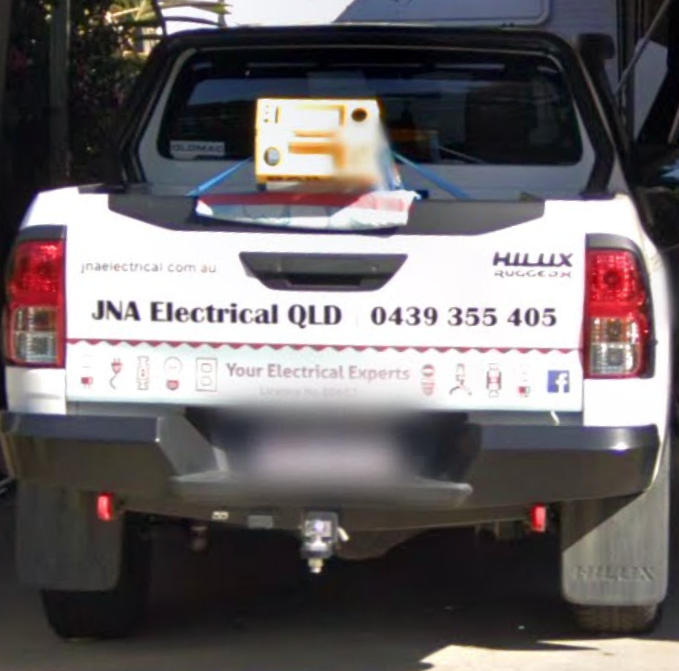
3. Evaluating the Cost of Electrical Work: What Should You Expect?
The cost of hiring an electrician can vary widely depending on the type of project, the electrician’s experience, and your location. However, it’s important to have a general idea of what to expect in terms of pricing and what factors might influence the final cost.
Common Electrical Jobs and Their Average Costs
- Installing New Wiring: Depending on the complexity of the job, installing new wiring in a home can cost between $500 and $2,000. More extensive rewiring projects can easily exceed $10,000.
- Installing Outlets or Switches: The average cost to install a new outlet or light switch is between $150 and $250 per unit. More advanced installations, like installing a USB outlet, might cost more.
- Electrical Panel Upgrades: If your electrical panel is outdated or unable to handle your home’s electricity needs, upgrading it can cost anywhere from $1,000 to $3,000.
- Installing Lighting Fixtures: Installing or replacing a standard light fixture typically costs between $200 and $800, depending on the fixture type and installation complexity.
- Electric Vehicle Charger Installation: As electric cars become more popular, many homeowners are adding EV chargers to their garages. Installing an EV charging station typically costs between $800 and $2,000.
These figures are estimates, and actual costs may vary depending on your location and specific needs. Always request detailed quotes and compare them to ensure you’re getting a fair deal.
Factors That Can Influence the Cost of Hiring an Electrician
- Location: Electricians in large cities often charge higher rates than those in rural areas. For example, electricians in New York or San Francisco might charge up to 25% more than electricians in smaller cities or towns.
- Experience and Qualifications: Highly experienced or specialized electricians may charge higher rates for their services. However, this can be worth it for complex jobs that require expertise.
- Complexity of the Project: Simple jobs like installing an outlet will cost much less than a complex home rewiring or panel upgrade.
- Materials and Equipment: Depending on the type of project, additional materials (such as wiring, outlets, or specialized fixtures) might increase the overall cost. Make sure your quote includes material costs.
- Emergency Services: If you need an electrician urgently for an emergency situation, expect to pay a premium for after-hours or same-day service.
Ways to Save Money on Electrical Work
While hiring a professional electrician is crucial, there are ways to ensure you’re not overpaying for electrical work. Here are some tips:
- Bundle Services: If you need multiple electrical tasks done, such as installing new outlets and upgrading lighting, bundling these services can sometimes lead to discounted rates.
- Time Your Projects Wisely: If possible, avoid scheduling electrical work during peak seasons or emergencies, when electricians tend to be busier and may charge higher rates.
- Maintain Clear Communication: Be upfront about your budget, and ask the electrician to provide a detailed breakdown of costs. Clear communication helps avoid misunderstandings and unexpected charges.
Conclusion
Finding a good local electrician requires careful consideration of several factors, from verifying credentials to comparing quotes. Taking the time to research and choose a reliable, qualified electrician can save you from safety risks, additional expenses, and subpar workmanship. Whether you’re dealing with an emergency or planning a major home renovation, following these guidelines will help you find a trusted professional who can handle your electrical needs efficiently and safely.
By taking the right approach, you can protect your home and ensure that any electrical work is completed with professionalism and precision. Remember, your safety and the integrity of your home are worth the investment in a skilled electrician.

